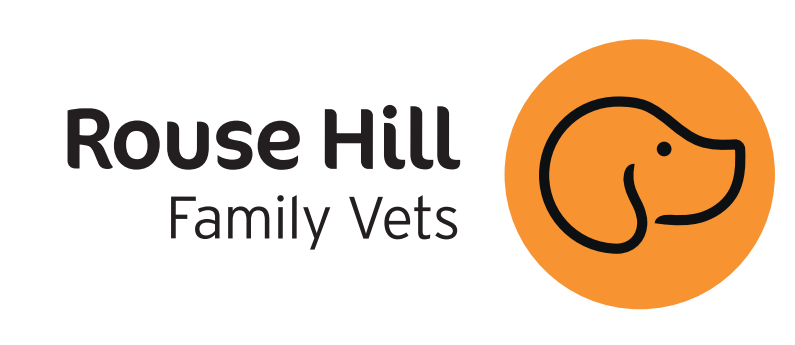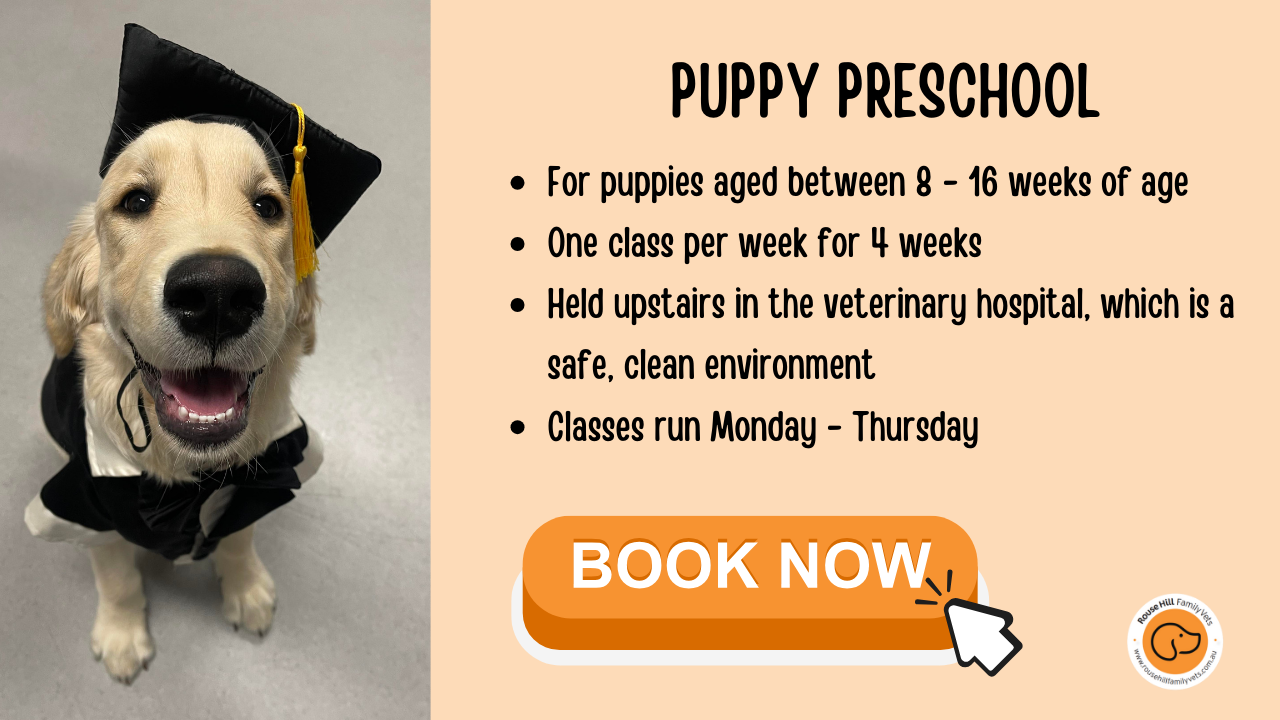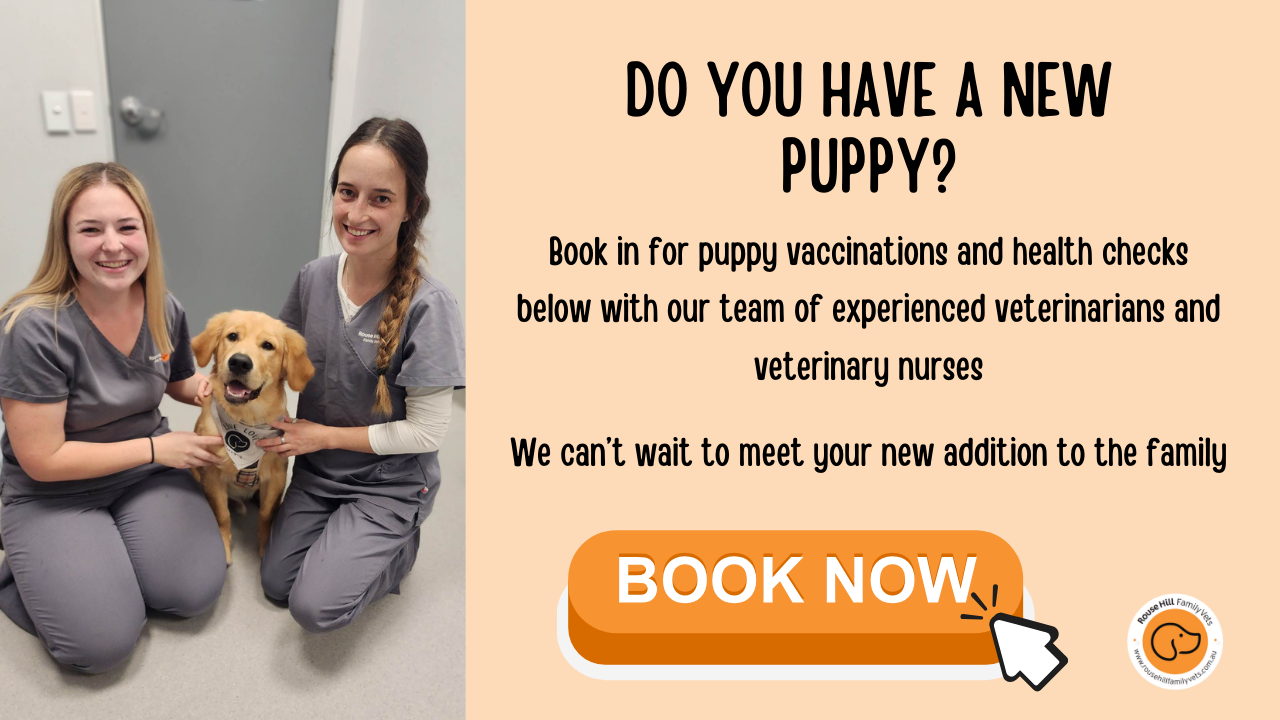Puppy Essentials Checklist
APPOINTMENT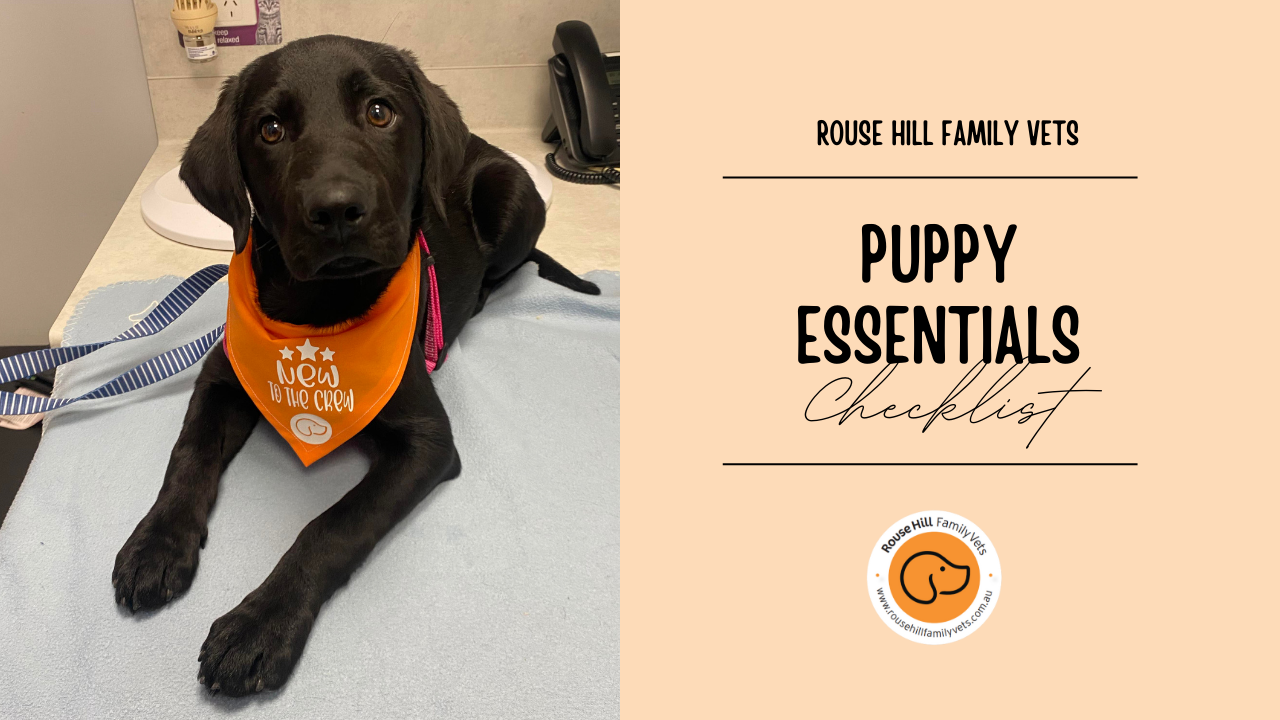
Congratulations on the arrival of your new gorgeous little bundle of fur that is full of energy, sharp teeth and an endless supply of urine. It may take a day or two for them to come out of their shell but in no time at all they rule the house and have you bowing to their every need and want.
It can be an equally exciting and overwhelming experience. Our experienced veterinarians and veterinary nurses are asked these questions everyday and over the years we have found a tried and true way to not only survive the first few weeks with your new puppy but to thrive with them as they grow.
Our team created a 12 step checklist to get prepared for your puppy’s arrival home.
1. Puppy crate and bedding
A crate is a small den-like area that will help your puppy to sleep through the night sooner, grasp toilet training quicker and will become their safe space to take themselves when they are feeling worried.
There are a few rules around the crate they are:
- Crate is a happy place only
- Do not use the crate for punishment
- Leur in and out with food, never force either way using treats to reward movement in and out of the crate as requested
- Do not allow family or strangers to approach the crate and taunt your puppy
- Feed your puppy in their crate to further make the crate a good place to be.
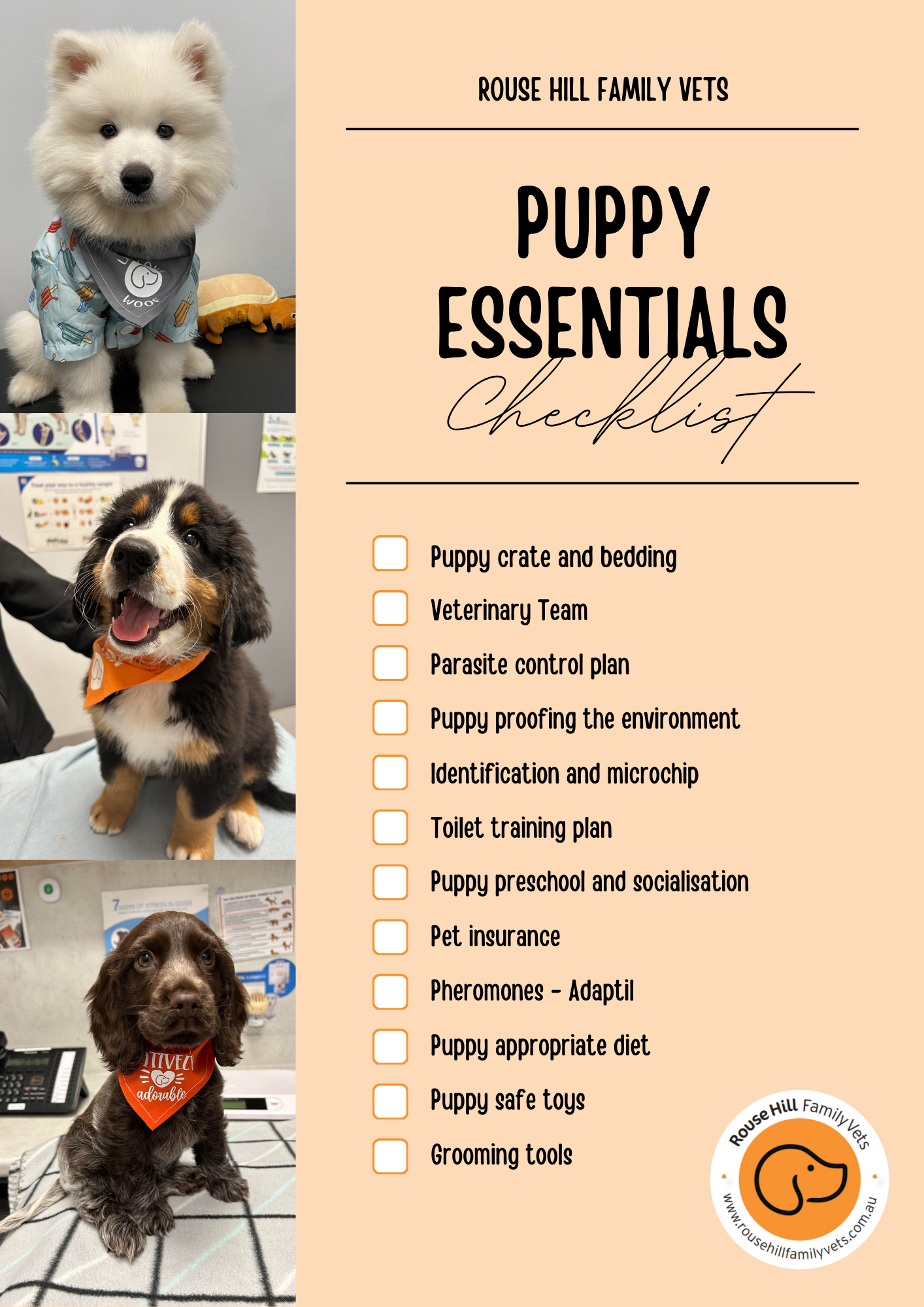
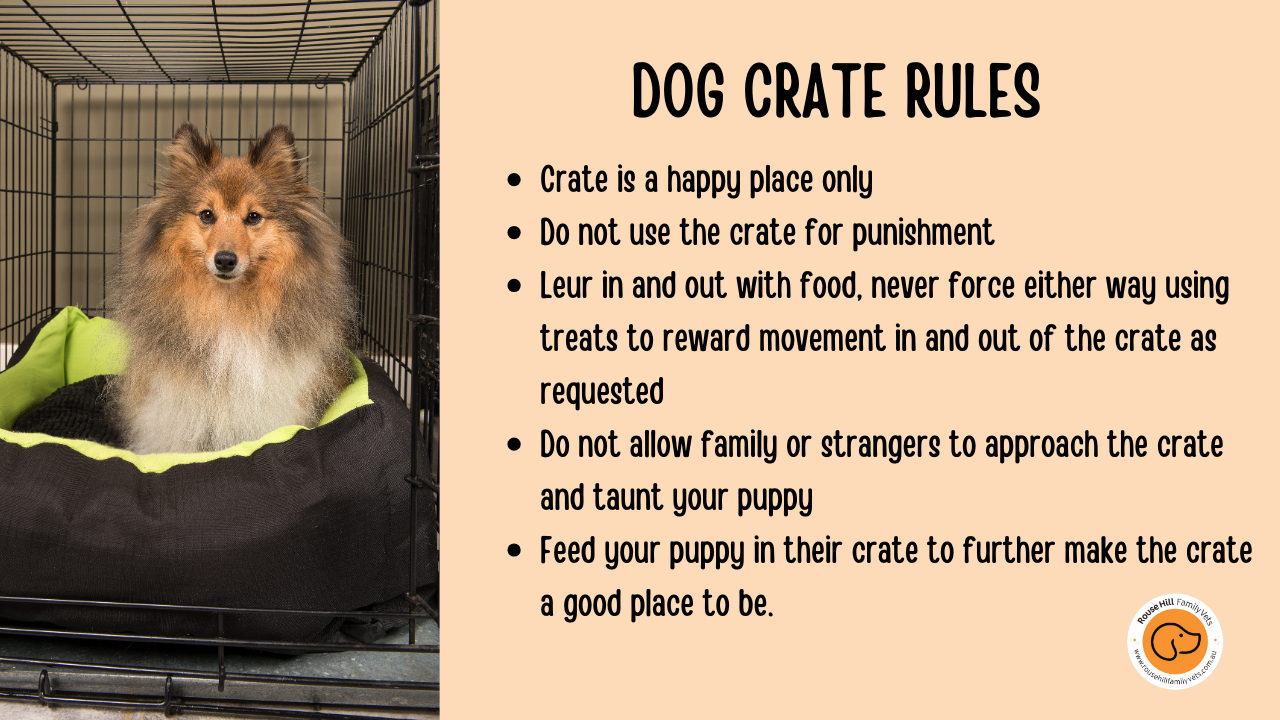
2. Veterinary Team
To ensure your puppy is protected against deadly diseases and parasites it is vital that you have a veterinary team that is looking out for your new puppy’s wellbeing.
We recommend an initial health check within 72 hours of your new puppy joining your family. This will allow your puppy to have a full health check, discuss how your puppy is settling into your home and for your veterinary team to check that your puppy is receiving the right preventative care.
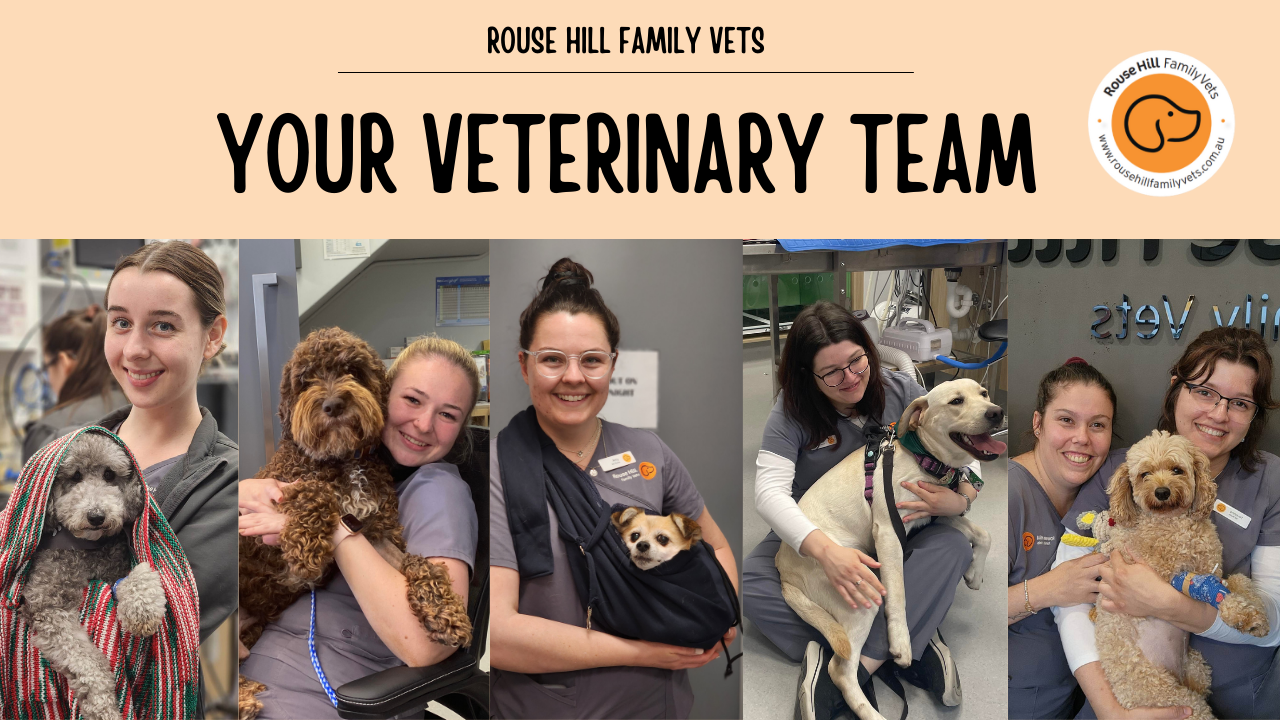
3. Parasite control plan
A thorough preventative care plan includes vaccinations, worming, flea, tick and heartworm prevention dates.
By the time you pick up your puppy they should have been wormed regularly and received at least one vaccination. Puppies require a total of three vaccinations with their final puppy vaccination being at 16 weeks of age or older.
It is important that your puppy and your family are protected against heartworm, fleas, paralysis ticks and intestinal worms. Some intestinal worms have zoonotic potential (this means they can be passed onto us) and so preventative care for your puppy helps to keep your whole family safe.
4. Puppy proofing the environment
By limiting access to a smaller area in the house you will be setting your puppy up to succeed. If they have too much space to roam around initially it can be daunting, overwhelming and dangerous.
- Puppy proof the main room they will be staying in, remember puppies will put anything and everything in their mouths so be sure to have cords and cables out of reach and ensure chemicals and medicines are safely out of reach.
- Provide access to bed, toys and consider a puppy pad or indoor grass such as a Fresh Patch
- Too much free range will also make it harder to toilet train with your puppy being more likely to have accidents when they need to go to the toilet.
- Ensure you have checked your garden fences so that your new puppy cannot escape, keep fertiliser, herbicides, insecticides and poisonous plants locked away from where your puppy can access them.
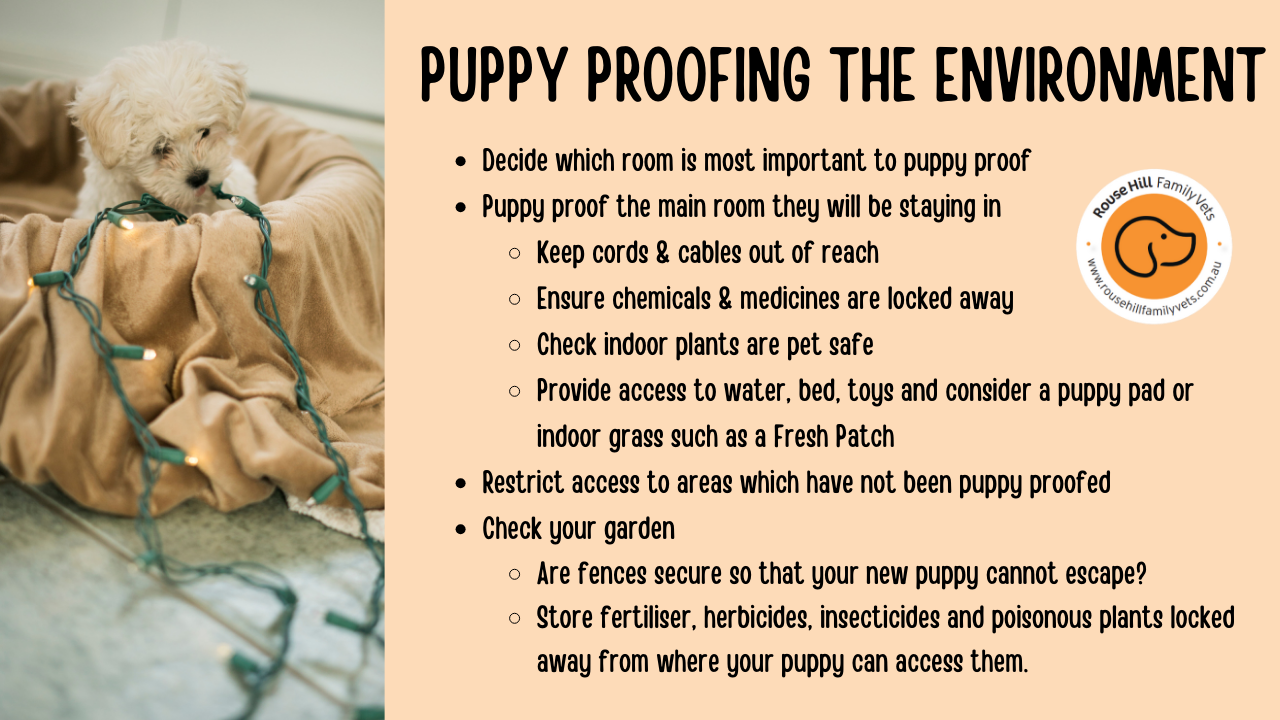
5. Identification and microchip
By law in NSW your puppy should be microchipped before they join your family. The breeder is responsible for changing the microchip into your name. Ensure that you have claimed your pet’s microchip through the NSW Pet Registry.
It is important that you also have a name tag and collar ready so that if your puppy were to become lost it is easier for them to find their way back to you.
6. Toilet training plan
Toilet training is often one of the most common causes of stress in families with new puppies. Utilising positive reinforcement, crate training and timing will help toilet training to come together for your puppy.
- Bribery – always take treats out with you when you are taking your puppy out to the toilet. Reward your puppy immediately when they toilet in the designated area.
- Never punish your puppy for having an accident
- Utilise crate training to help teach your puppy to hold on through the night
- The most likely times your puppy will need to go to the toilet will be after they wake up from a nap, after they eat or drink or after they have been running around. So be prepared to take them to their designated toileting area
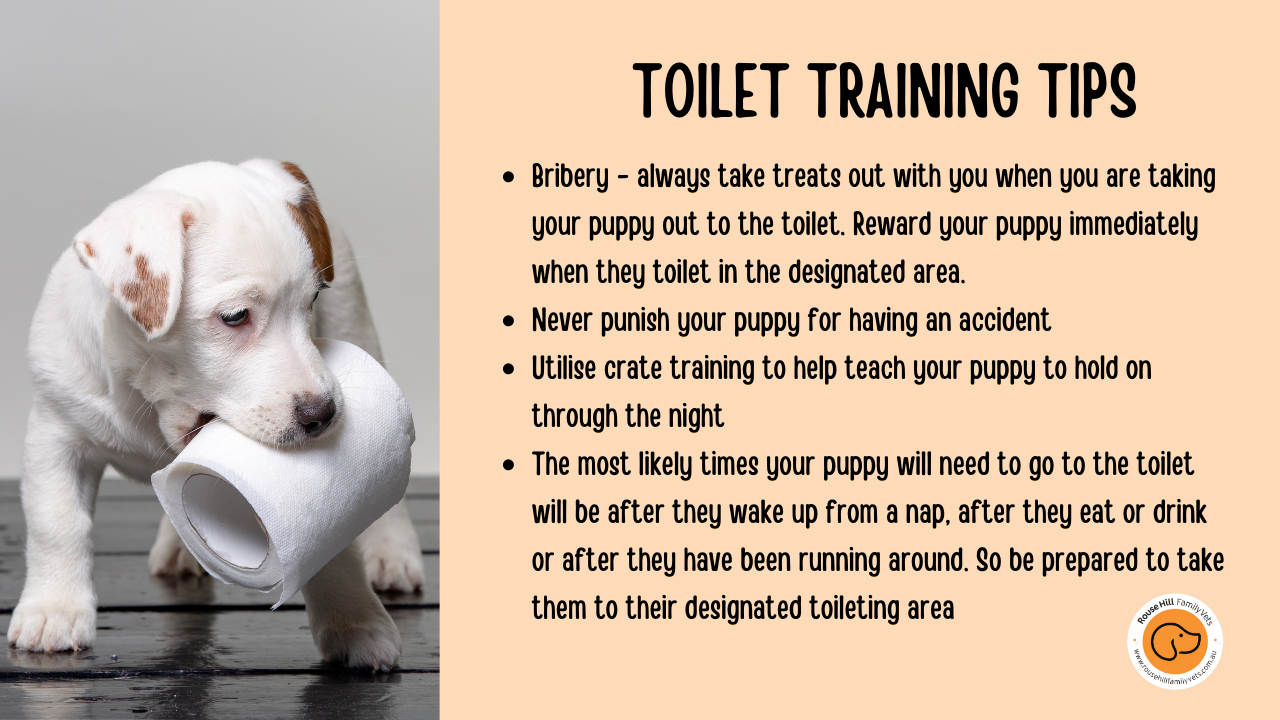
7. Puppy preschool and socialisation
Your puppy will generally arrive into your home during their socialisation period. It is during their socialisation period that they are most accepting of new and different situations. The socialisation period is from 8 until 16 weeks of age.
For this reason it is vital that they experience a positive puppy preschool class where puppies are not forced beyond their limits, that they learn about having good interactions with other puppies and that they are exposed to different sights and sounds before they are fully vaccinated.
We run puppy preschool classes Monday through Thursday evenings and you can book your place online HERE
8. Pet insurance
You never know what mischief your puppy might find themselves in and so having pet insurance is a good way to have that extra piece of mind that if something happens you are covered.
Most pet insurance companies in Australia are underwritten by two main players. When selecting pet insurance we recommend that you:
- Consider the level of cover appropriate for your family
- Read the fine print – some will have limits on the number of times you can claim for consults per year or sub limits on how much they will pay out per condition
- Most do not cover dentistry – so if you want dentistry covered you’ll have to make sure that’s in your policy
- Behavioural problems are also unlikely to be covered
- Find out if your company offers GapOnly payment and if your veterinary clinic will process GapOnly claims. We provide GapOnly for any large surgical or hospital bills.
- Ask about the claims process – can it be performed online or do you need you to post them forms everytime you want to claim?
- Sometimes you add it on to your own personal insurance or home insurance
We do not recommend one company over another but instead suggest you look into the above points when considering insurance and then make the decision based on your family’s needs.
9. Pheromones – Adaptil
Adaptil is a synthetic dog appeasing pheromone. It is the same pheromone the mother dog releases after she has given birth which helps new puppies to feel relaxed and comfortable.
We recommend using adaptil collars in puppies as soon as they come into the new home – it will help them to settle into the new environment faster, sleep through the night sooner and be more responsive to training.
We use adaptil in the veterinary hospital, every puppy receives an adaptil sprayed bandana on arrival to our clinic and we have an adaptil plugin in each of our consults rooms to help make vet visits less stressful for all of our canine patients.
Save $20 on Adaptil Junior collars in clinic (Now $58, down from $78)
10. Puppy appropriate diet
Growing puppies require a nutritionally balanced diet to ensure they grow to become healthy happy dogs. Home prepared meals can be difficult to balance appropriately but can be done with consultation with a veterinary nutritionist. We recommend feeding a high quality puppy kibble specific to your puppies individual needs.
What NOT to feed your puppy:
- Raw meat/bones – your puppies gastrointestinal tract is immature which makes them more susceptible to raw meat borne infections such as salmonella and campylobacter
- Chicken necks
- Chocolate, onions, garlic, grapes, sultanas, macadamia nuts
- Pork – this tends to be too rich on puppy tummies and will often cause diarrhoea
What you CAN feed your puppy as treats:
- Boiled chicken
- Dehydrated meats
- Raw carrots
- Puppy Whimzees
- Liver treats
- Duck sticks
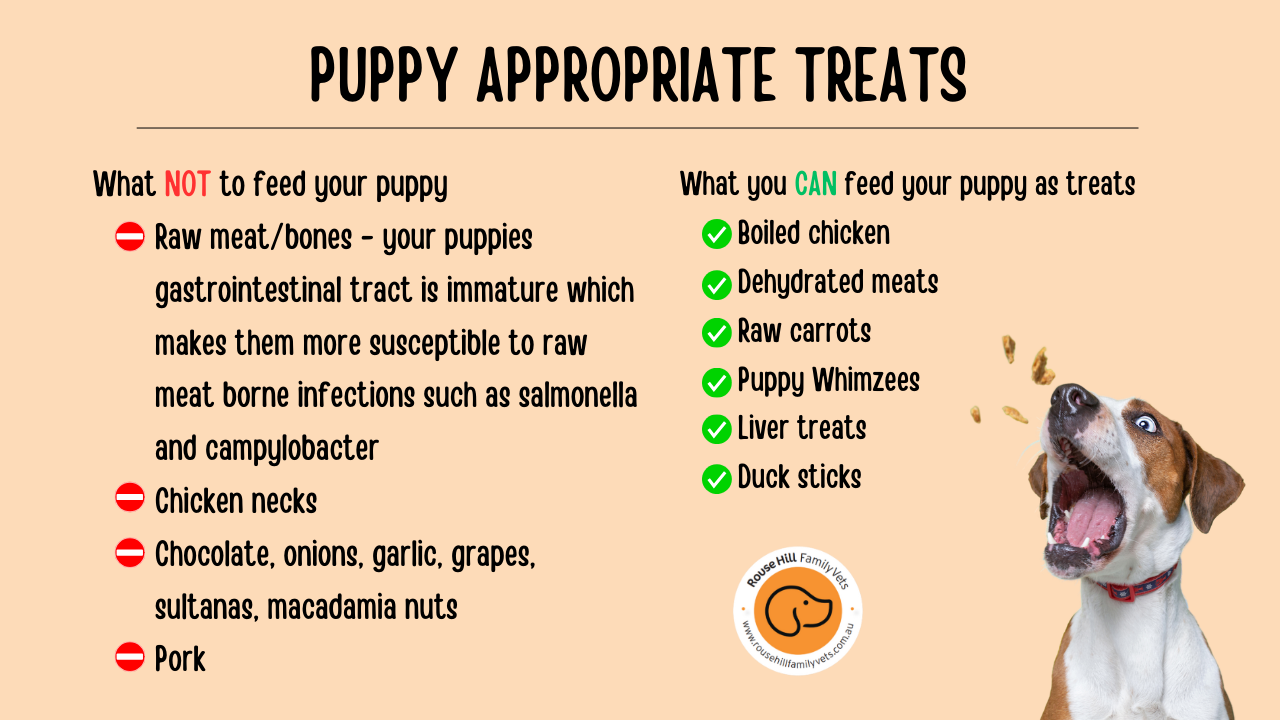
11. Puppy safe toys
Puppies love to explore the world with their mouths so you are going to be fishing an endless number of items out of their mouths in the coming weeks to months. Chewing is a normal behaviour so ensuring that you have plenty of toys on offer to chew instead of shoes is vital.
The types of toys we recommend for puppies include:
- Puppy kongs
- Bob-a-lots
- Everlasting treat balls
- Snuffle mats
- Rope toys
12. Grooming tools
It is important to start good grooming habits early so making sure you have the following grooming equipment ready for your puppy:
- Brush and comb
- Nail clippers
- Soap free shampoo & conditioner
- Toothbrush and pet safe toothpaste
Whilst puppies will lose all of their baby teeth by the time they are 6 months old, it is important to get them used to having their teeth brushed daily so that we are protecting those adult teeth from day 1.
Groomers are also in high demand and often book out weeks to months in advance. When you get your new puppy it’s best to book in their first “puppy clip” for after their final puppy vaccination.
Making a difference when it matters the most

Address
Rouse Hill NSW 2155

Opening Hours
Monday - Thursday: 9am - 6pm
Friday: 9am - 5pm
Saturday: 9am - 1pm
Sunday & Public Holidays Closed
In-home euthanasia services run outside of opening hours by appointment only

Contact
Please fill out the form below and a member of our team will be in touch with you shortly. Alternatively please contact us directly at 02 9086 9130.
